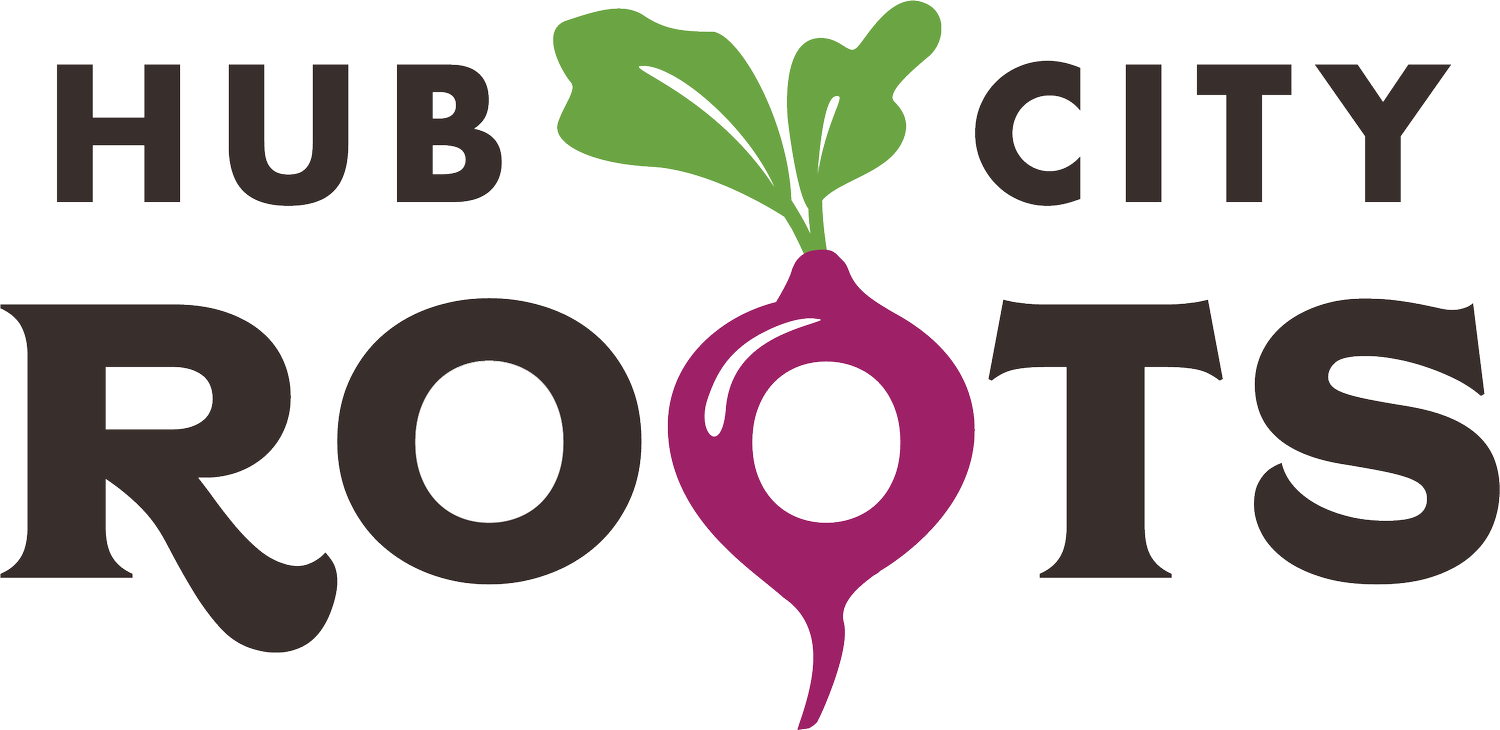What: Hub City Roots—Seed to Table Program
Where: Hub City Roots (HCR) is located in Spartanburg, SC, with the Seed to Table Program serving the Historical Northside and Southside communities.
When: Hub City Roots’ Seed to Table Program began in 2018, serving local students with STEM-based activities during field trips to the Hub City Roots Urban Teaching Farm. In 2020, Covid hit and caused a major disruption. Field trips were no longer an option, so the program created the Virtual Seed to Table video series, as well as Seed to Table On the Go, which visited locations like the library and provided nutrition workshops and free produce to students. In February 2022, the new Seed to Table Partner Program model was piloted with The Franklin School, Cleveland Academy of Leadership, and Mary H. Wright Elementary School. This model is still being implemented today.
Why: In Spartanburg County, 33% of first, third, and fifth graders are obese or overweight. Further, 67% of adults are overweight or obese and only 1 in 10 adults in the US meets federal guidelines for daily fruit and vegetable consumption. The top two causes of death in Spartanburg County are heart disease and cancer, both of which can be linked to poor diet. Unhealthy eating habits give Spartanburg residents a poorer quality of life, preventable diseases, and shaves years off their lives.
Over the years, HCR has learned of the challenges in accessing healthy foods and the lack of nutrition education. Seed to Table addresses these challenges and aligns with the nutrition standards of each local School Food Authority, helping schools meet the need for increased fruit andvegetable consumption through its educational programming in the classroom and at Hub CityRoots’ Urban Teaching Farm. The goal is to provide accessible, healthy, local food within a food desert and change the health outcomes of the community for the better.
Who: Seed to Table currently serves 4K students at The Franklin School—Early Learning Child Development Center; Kindergarten, 1st grade and 2nd grade at The Cleveland Academy of Leadership; 2nd, 3rd, 4th and 5th grade at Mary H. Wright Elementary School, and recently added Carver Middle School’s Garden Club, consisting of 6th-8th grade students.
Since 2018, HCFM has provided Seed to Table programming to over 1,500 Spartanburg youth. The schools currently participating in our Seed to Table partner program are near HCR’s Urban Farm, making it easily accessible.
How: In July 2022, Hub City Roots, formerly Hub City Farmers Market, was awarded the USDA Farm to School Grant which was instrumental in the financial support needed to drive the program forward. The grant allowed Seed to Table to hire a Farm to School Instructor who goes into the schools each week teaching nutrition education. Seed to Table also receives funding from Food Lion to supplement the cost of taste testing.
Hub City Roots’ Urban Teaching farm is located in the Northside Neighborhood in Spartanburg, known for its years of disinvestment. For six years, HCR built relationships with residents by partnering with area schools, regularly distributing food, and joining the Northside Neighborhood Advisory committee. In 2015, HCR partnered with the Northside Development Group to build Harvest Park Healthy Food Hub, which consists of HCR’s Saturday Farmers Market and Urban Teaching Farm.
ProTips: Raven Logan of Seed to Table offers the following suggestions:
“Tip #1 – Find out what your community wants and needs and then decide how you can support THEM. So often, organizations have great ideas and apply for grants to support these ideas, without consulting and building relationships with the people who are supposed to be on the receiving end. Tip #2 – Take your time. Growth is not linear. Numbers are great, impact is better. Focus less on the number of students you’re serving and more on the quality of service you’re providing. Tip #3 – Relationships really do matter. Having a strong relationship with the faculty and staff, as well as the teachers, is what will keep things running. Since we are taking school time to conduct our workshops, it’s important that all parties involved feel that your presence is valuable and are bought in on your initiative.”
Meaningful Stats: In 2022, Seed to Table served 10 classes, approximately 180 students each week, and completed 2,953 total student interactions, with an unduplicated student count of 1476. In 2023, Seed to table served 13 classes, plus a gardening club, averaging 250 students each week.

